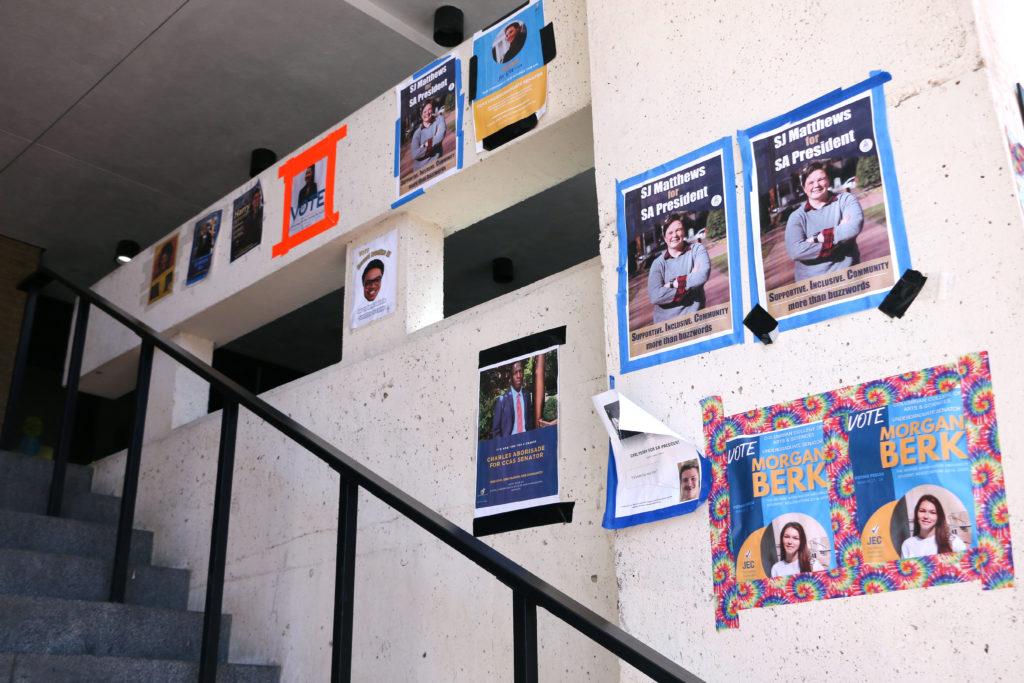One year ago, six students ran campaigns to represent the Columbian College of Arts and Sciences in the Student Association Senate – the exact number needed to fill the slots.
The uncontested race ended unsurprisingly – but this year, 11 hopefuls are vying to claim the title of CCAS-U senator, making the race the most competitive of all SA positions. Candidates said the increase in the number of contenders reflects high interest in student government among CCAS freshmen, who make up all but one of the candidates in the race.
SA Sen. André Gonzales, CCAS-U, the only current CCAS senator running for re-election and the only non-freshman running for the spot, said he chose to run for CCAS-U rather than undergraduate-at-large because he wants to aid a specific constituency. He said the post allows him to hear out issues specific to CCAS, like securing enough funding for the music department.
“I want to be the one that says I will run for a CCAS seat so I can bring that institutional knowledge and continue to be an advocate for the Columbian College,” Gonzales said.
Gonzales, who was confirmed to the senate earlier this semester, said the undergraduate CCAS seat could be the most popular because the school houses majors like journalism and political science, and freshmen may be eager to have a hand in the student government.
“It’s refreshing to see that there’s young blood coming in,” Gonzales said. “It’s refreshing to see that there are new voices coming to the table.”
Freshman Keith Nagy, a CCAS-U candidate, said the seat could be more competitive than years past because students want to push for initiatives that directly impact CCAS students, like a one-on-one advising system. CCAS students are currently separated into three “POD” groups featuring multiple academic advisers, but officials piloted a one-on-one advising model for POD 3 students this semester.
“A competitive election will produce better candidates and eventually better public leaders,” Nagy said.
Freshman Patrick Burland said he is running for CCAS-U because he wants to advocate for a mix of CCAS-specific and University-wide initiatives, like offering personal academic advisers for every student and creating a lounge for commuter students.
He said his platform includes both school-specific and University goals because he wants to work to improve the lives of all students at the University, not just those in CCAS. He said lowering fees for laundry and receiving transcripts are two of his University-wide goals.
“I’m getting into the nitty-gritty things that can change very quickly, as well as some long-term things,” Burland said.
Freshman Morgan Berk, a CCAS-U candidate, said she decided to run for the senate seat after serving on the SA’s student engagement committee this year.
Because the CCAS-U election is the most contested, Berk said she is trying to stand out among other candidates by meeting directly with constituents. She said most CCAS-U candidates have pushed their campaigns on social media instead of directly meeting with students.
“I like to think that a meaningful conversation with students about what they want to be done in the SA will be more effective than endless posts and stories,” Berk said in an email.





